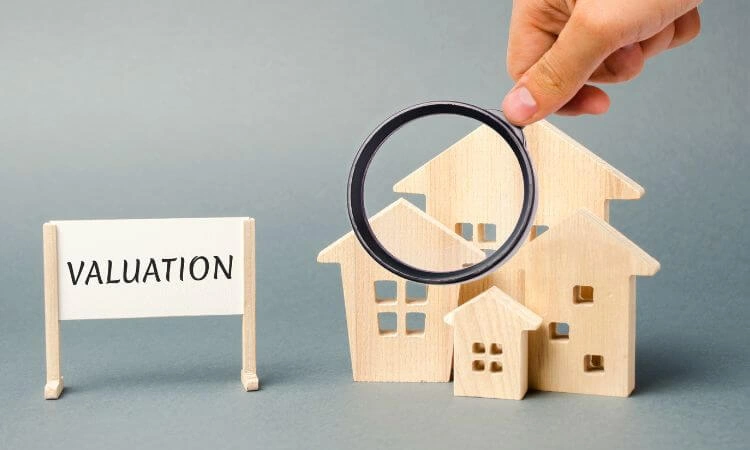The Importance of Accurate Property Evaluation in France

When it comes to real estate in France, one of the most crucial elements in any transaction is a reliable property evaluation. Whether you’re selling, buying, inheriting, or refinancing, understanding the true market worth of a property can save you from costly mistakes and legal complications. Knowing how to obtain a proper évaluation and when to seek professional help is essential for any homeowner or investor.
If you’re currently considering an évaluation for your property, this article explains the core concepts, processes, and benefits of doing it correctly.
What Is a Property Evaluation?
A property evaluation is a detailed assessment that estimates the current market value of a house or apartment. It goes beyond just looking at the purchase price or surface area. Instead, it factors in market conditions, the condition of the home, comparable sales, and regulatory aspects.
Common Use Cases:
- Preparing a home for sale
- Securing a mortgage or refinancing
- Declaring assets for tax or legal purposes
- Settling inheritance or divorce
An accurate evaluation helps ensure that no party is overpaying, undervaluing, or risking future financial trouble.
Types of Property Evaluations in France
There are multiple types of evaluations depending on the situation and intended use.
- Market Valuation
A rough estimate based on current market trends, useful for sellers and buyers.
- Legal Evaluation
Conducted for notarial or judicial purposes, such as succession or divorce.
- Banking Evaluation
Used by banks and lenders to assess the value before granting a loan.
- Professional Appraisal
Prepared by certified experts (experts immobiliers) with in-depth technical and financial analysis.
Choosing the right type of evaluation depends on the legal and financial context.
What Affects a Property’s Evaluation in France?
Evaluations are influenced by a variety of objective and subjective factors. Some can be controlled by the owner, others are dependent on external conditions.
Property-Related Factors:
- Living space in square metres
- Number of rooms and bathrooms
- Age and structural condition
- Energy efficiency rating (DPE)
- Outdoor features (balcony, garden, pool)
- Renovation history and quality of finishes
Market-Driven Factors:
- Recent sales in the same area
- Property demand in the region
- Macroeconomic indicators (interest rates, inflation)
- Urban planning and upcoming infrastructure projects
Legal and Administrative Factors:
- Zoning regulations and property use classification
- Building permits and compliance with local laws
- Environmental risks (flood zones, seismic activity)
Who Can Perform a Property Evaluation in France?
Different professionals can perform evaluations depending on the situation.
- Notaires
They use official databases of recorded transactions, offering highly accurate historical data. Especially helpful during inheritance or donation.
- Real Estate Agents
Provide market-based estimates based on recent comparable sales. Ideal for sellers.
- Chartered Appraisers (Experts Immobiliers)
Deliver official, in-depth reports that are accepted by banks and courts. They charge a fee but ensure complete legal credibility.
- Online Valuation Tools
Quick and free tools that give rough estimates using algorithms and local averages. Good for initial orientation, but not sufficient for formal processes.
Steps to Get a Property Evaluated
While the process may vary slightly depending on the evaluator, it generally includes the following steps:
Step 1: Collect Property Information
- Title deed and floor plan
- Tax and utility bills
- Past renovation invoices
- Property diagnostics (DPE, asbestos, etc.)
Step 2: On-Site Inspection (for professional or agent evaluations)
- Verifies size, condition, and layout
- Reviews the surrounding environment and local amenities
Step 3: Comparative Market Analysis
- Recent sales data for similar properties
- Adjustments for unique features or deficiencies
Step 4: Final Report or Estimation
- Summary of findings
- Legal and regulatory notes (if applicable)
- Proposed valuation range or exact market value
Why Accurate Evaluation Matters
An inaccurate valuation can have serious consequences, from financial losses to legal disputes.
For Sellers:
- Overpricing may deter buyers and delay the sale
- Underpricing can lead to financial loss
For Buyers:
- Overpaying affects mortgage eligibility and resale value
- Undervaluing may indicate hidden issues
For Inheritance or Divorce:
- Fair division of assets depends on impartial valuations
- Courts and notaires require precise figures
For Taxation:
- Inaccurate values can lead to overpayment or audits
- Impacts wealth tax (Impôt sur la fortune immobilière) calculations
Common Mistakes to Avoid
- Relying solely on online estimations for legal matters
- Failing to update evaluations after major renovations
- Using biased or outdated comparable sales
- Ignoring legal risks like zoning violations or boundary disputes
Always verify your source and ask for documentation when receiving an evaluation.
How to Prepare for a Property Evaluation
To make the most of your evaluation appointment or tool:
Preparation Checklist:
- Clean and declutter your home to showcase space
- Organise all documents in advance
- Make a list of recent repairs and improvements
- Be ready to answer questions about the property’s history and local area
Preparation leads to a more precise and credible valuation.
Frequently Asked Questions (FAQ)
Is an online valuation legally valid in France?
No. While online tools provide a helpful estimate, only certified experts or notaires can issue binding evaluations.
How much does a professional evaluation cost?
Typically ranges between €250 and €800, depending on property size and location.
Can I challenge an evaluation?
Yes. You can request a second opinion, provide new documentation, or ask for a revised report if errors are found.
How long does a property evaluation take?
- Online tools: Instant
- Agent estimates: 1–3 days
- Expert reports: 3–10 days (after property visit)



